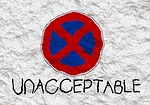Faculty Development Workshop Purpose and Focus
- To develop the expertise (knowledge, skills, and dispositions) needed to minimize or prevent plagiarism (intellectual theft)
- To develop methods, tools, and policies of promoting and maintaining academic integrity for all class assignments
- To develop ways of enlightening students to the seriousness and consequences of plagiarism
- To review the major components of APA (American Psychological Association) Style for writing and formatting research papers, since it is the most commonly used and accepted format within the social sciences
Overview
Plagiarizing class and course assignments is too common among students, whether intentionally or unintentionally. By being well versed in strategies to detect, prevent, and handle intellectual theft, educators help promote academic integrity amongst their students. APA Style comes to the rescue.

“If a student submits a paper that is good enough to be
published, maybe it has.” ~Jefferson D. Caskey
Top 26 Learning Objectives
By successfully completing this workshop, participants should be able to demonstrate their expertise in detecting and preventing plagiarism while promoting academic integrity amongst their students. This will be evident as participants:
- Define and give examples of plagiarism.
- Describe the concept of self-plagiarism.
- Discuss reasons why some students intentionally and unintentionally plagiarize.
- Discuss common misconceptions regarding plagiarism.
- Explore plagiarism detection software such as Turnitin.
- Explore ways to use such software as a learning tool to keep students honest, rather than use it in an adversarial manner.
- Explore strategies and policies to prevent, discourage, or minimize plagiarism.
- Align their personal policy of plagiarism consequences with that of the institution’s.
- Develop a clear academic integrity/anti-plagiarism policy for their course syllabus.
- Create a list of strategies to promote academic integrity and promote authentic work.
- Discuss ways professors may role model academic integrity.
- Review methods of paraphrasing.
- Provide tips for summarizing.
- Explore essential components and guidelines of APA Writing Style.
- Review APA style of writing a quotation.
- Review APA style of indicating a quote within a quote.
- Discuss appropriate written use of ellipses, brackets, and block quotations.
- Discuss APA style of writing an in-text citation.
- Discuss APA style of referencing books, articles, online sources, and interviews.
- Discuss APA style of creating a reference (works cited) page.
- Explore interactive Internet resources that provide APA formatting.
- Explain copyright essentials and fair use policy.
- Develop methods to practice academic integrity consistently.
- Develop a list of Do’s and Don’ts for promoting academic integrity.
- Develop strategies and a policy for handling plagiarism.
- Develop a student’s checklist for insuring academic integrity for written work.
Handouts
Titles
- Nomenclature: Plagiarism Definitions
- Sample: Plagiarism Consequences Policy
- Sample: “To-Be-Signed Statement” Indicating That Students are Aware of The Institution’s Plagiarism Policy
- Best Practices for Preventing Plagiarism
- Best Practices for Promoting Academic Integrity
- Tips: APA Rules and Examples
- Check List to Ensure Academic Integrity
- Quotations: Plagiarism
- References and Resources: Plagiarism
- References and Resources: APA
- Webliography: Plagiarism Internet Resources
- Webliography: APA Internet Resources
This faculty development workshop is available to serve as
Professional Development Hours.
Each participant, who successfully completes this
faculty development workshop,
will be awarded a “Certificate of Completion”.
Click to Contact Dr. Nesnick
or
E-mail: Victoria@VictoriaNesnick.com
or
Phone: (631) 889-2178

